#this is why i don't watch the films
Text
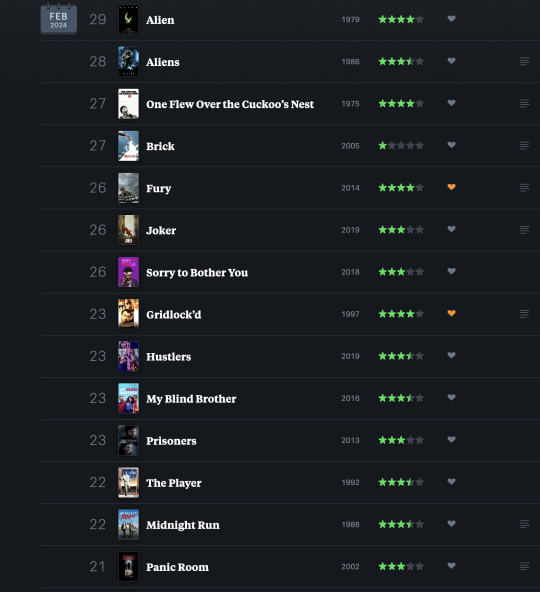
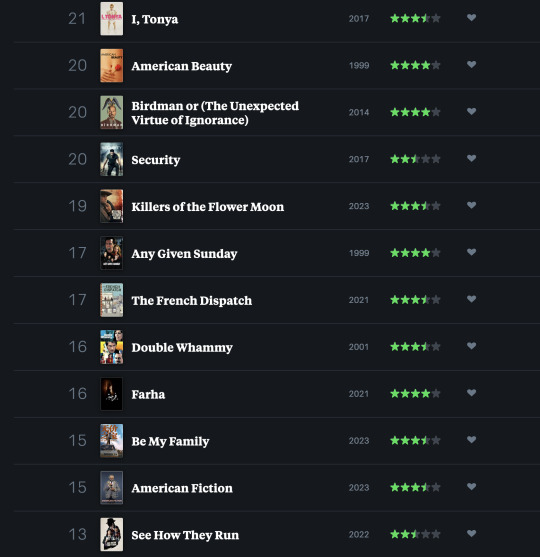

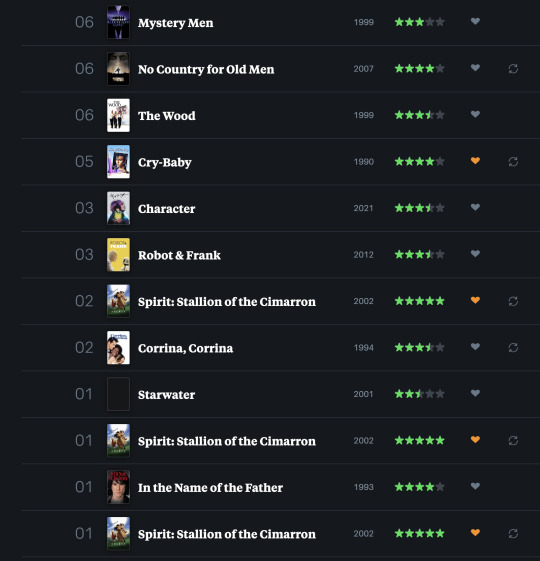
Ok I'm not gonna do this for Jan but I think going forward I will & feel free to judge my taste in movies, I know I do.
Favorite (new) movies watched this month: Death Proof, Gridlock'd, Calvary, Any Given Sunday, Fury
Least Favorite movies: Brick, See How They Run
Movies that were Fine™ but I wouldn't recommend: Days of Thunder
Movies I 100% forgot I watched: Corrina, Corrina
Movies that surpised me: Birdman (it's been on my radar since it came out, but I never actually knew what it was about), Hustlers (I think I got it confused in my mind with The Hustle, so I went in thinking it wouldn't be that good, but it was a blast)
Non-English movies: Character, Be My Family, Farha,
Always open for more recs, too. I think I watched a lot more recs from followers last month than I did this month, but I still got around to a couple of them!
#text#wawa watches#< blacklist this tag if you don't give a shit but i'll only be posting these at the end of the month!#I watch movies while I do my work in case you're wondering#but that's also why i haven't gotten around to a lot of foreign language film recs yet :S#'how are you only watching some of these for the first time in 2024' there are a lot of movies in the world ok
64 notes
·
View notes
Text
I know this is a very unoriginal observation (much like any other), but I'm finally reading The Great Gatsby, and even I wouldn't describe men the way Nick does.
#queer#lgbt#lgbtq#i did watch the 2013 film for my ap english class though (i think they didn't have enough time left for us to actually read it)#like the way he described tom was very. superfluous in my opinion. something you want to tell the class NICK (joking)#i find myself really partial to the general writing styles of that time though#i haven't even gotten that far in the book either i'm just barely past the part where daisy is introduced#so nick is just waffling about his family history and how he rents for $80/month#which is relatable when you consider inflation. nick i hope you eat you landlord#i can see why people don't like this writing but i am endlessly fascinated by the prose#maybe i should just free myself from the impulse to hide behind layers of self-censorship and live like nick does#tbh tho i still prefer non-fiction and textbooks BUT fiction is valuable and is useful#fiction is like play - it lets you explore different possibilities and thought in a safe environment
105 notes
·
View notes
Text
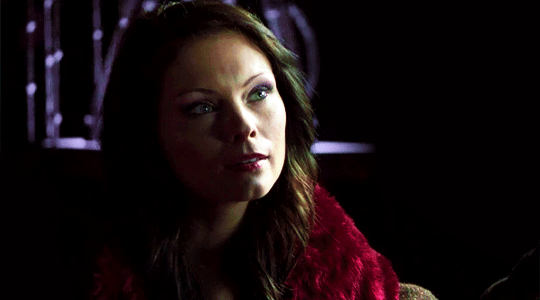
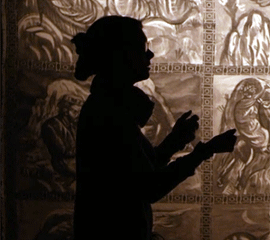
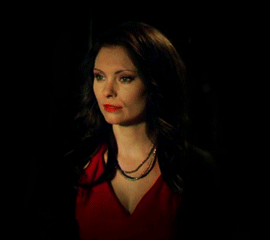
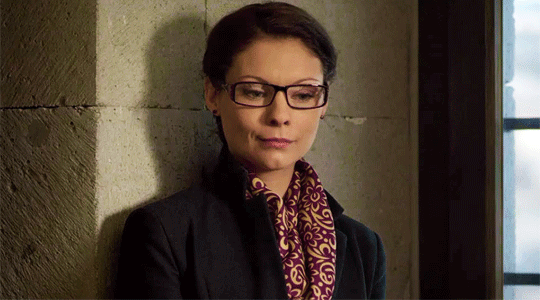
So where do you live here?
In a house. I also have cat, but cat has no name, so do not ask this as next question.
Myanna Burning as Chulpan (Lost in Karastan, 2014)
#some very random gifs but heyo here we are#myanna buring#lost in karastan#what a strange film#eh#watch it for her ig#arwen makes gifs#she is Incredibly Attractive ok#ngl i was making these and then i kind of got bored and tired of coloring so i just#uh#stopped#and that's why you get these 4 random gifs lol#my b guys#sorry they don't match!!!#the last one with the jacket and scarf remains peak florist!tissaia look
94 notes
·
View notes
Text
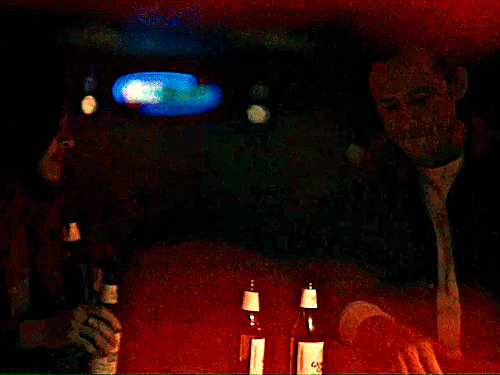



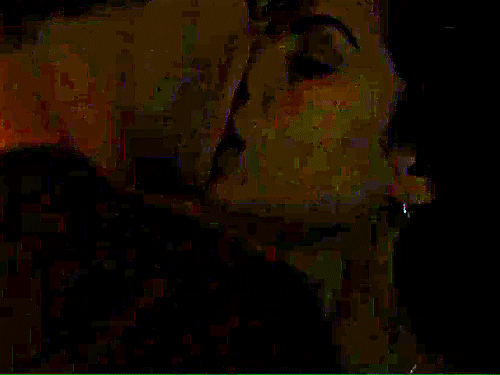


"Maria and Rhett knew each other way back when, they went to high school together. (...)Yeah, I think the spark is immediate because I think they maybe, secretly, always wanted to be together."
"I think that it's one of those relationships that never happened and never was but it was almost. And, I think, spending so much time apart, one can tend to fantasize what could be. (...) All of that ease of them seeing each other again is right there and it's almost as if they never left each other's side." - Isa and Lew on Maria and Rhett in an interview with Down and Nerdy(x)
"I also love that I get to tell a story about love in this really crazy, scary world(...) and we really want to root for them!" - Isa in an interview with SciFi Vision(x)
#outer range s1#maria olivares#rhett abbott#rhett x maria#isabel arraiza#lewis pullman#tw: alcohol#tw: flashing lights#another last s1 gifset before s2#i know most of you are rhett/lewis fans but please no maria or maria/rhett hate here! thank you!#can't wait to see them together again and how their relationship evolves(or falls apart?)#again sorry about the shitty coloring#i love how smiley she is when she kisses him in their first and last kiss scenes#i actually watched all three of their interviews together but didn't know where to put them#here's to no love triangles or cheating or babies! don't have them destroyed like bodiela was for me#lol his smile before he asks her if the beer is for trevor was so cute... had me giggling and kicking my feet for real#i hope lewis and isa get to do press together in person but i really doubt they will because lew could be filming something?#i would settle for even another zoom call interview#idk why the first peck after they made out seemed improvised to me but it did and i wanna know if it was#i found out from a podcast not too long ago that they maybe didn't do a chemistry read... wow!#the smile after she hands him a beer is adorable#tw: alcohol?
24 notes
·
View notes
Text
Some questions about "Tàr" (long, spoilers)
What really happens in the film, "Tàr"?
a. Nothing, silly. It's a movie.
b. Ha ha. Actually, within the confines of the reality within the movie, this is a pretty straightforward story of a world-famous conductor who abuses her power to take advantage of female musicians. In the course of the story, her long history of abusive behavior is revealed to the public and her life unravels, leaving her alone and having to start over her career from the bottom, hopefully having learned her lesson.
c. Same, only everything after she descends into the weird underground apartment complex and is menaced by a shadowy dog who chases her until she faceplants hard onto cement is not real, it's either a dream or a metaphor, because she's in a coma or dead. Other odd scenes before that are dream sequences following which we see Lydia wake up in bed, establishing that some of what we see are actually Lydia's dreams. The story, however, is straightforwardly following the path described above.
d. What we see in the movie is entirely real and following the course of B, but portrayed from a pov so deeply embedded in the protagonist's mind that critical details are distorted or omitted; moreover, the protagonist is experiencing auditory and visual hallucinations as a result of her guilt over the death of Krista.
e. The entire film is literally happening as described in B, however there are supernatural elements at work that make Tàr more of a horror genre piece than people are prepared to accept from a prestige film. Lydia is being haunted by the spirit of Krista, and it is this spirit that is making strange things happen around her. We have several direct sightings of this ghost, a red-headed woman seen in the audience at several points and in Lydia's home at night. Possibly Krista is the architect of Lydia's downfall.
f. This is possibly the least straightforward film I've seen in a decade or more; potentially none of what we see directly is literal.
2. What evidence from the film supports this explanation?
a. LOL.
b. We are not given any reasons to doubt that Lydia has been abusing her power, or that the women she has been abusing are lying. It seems to be an open secret that Lydia preys on beautiful young musicians, and even Lydia's wife knows very well about these affairs. It is, in fact, exactly how she ended up with Lydia in the first place, and how she continues to be the Concertmaster in her orchestras across the world. The other women, it is implied, are discarded when they are no longer interesting to or of use to Lydia, and this keeps her wife more or less satisfied and in place. When the press begins to put the pieces together after several leaks of information, leaks from people we have witnessed Lydia mistreating onscreen, Lydia's financial backers, her collaborators, and her orchestra can no longer ignore what she has been doing, and neither can her wife. Although it happens very quickly, it is reasonable that her downfall would follow under these conditions, especially given the suicide of one of her former conquests. The film depicts all of these events directly in a cinema verite-like style, unadorned, without even a soundtrack unless it is being played by a character onscreen, to emphasize the reality of events. The story is the story, it all literally happens.
c. However. The passage in the abandoned building differs stylistically from the rest of the movie and is filmed in the manner of a thriller, and everything depicted after that is heightened and sped up considerably from the more leisurely pace of the first hour. The bulk of Lydia's downfall occurs after this scene, and we start to feel at this point as though scenes are missing. Events are elided and described later offhandedly, where before they had been portrayed almost in real time. The hammer falls blow after blow to Lydia's life and career from this point onwards. Is this actually Lydia's fears we are seeing? Is it some kind of coma dream or afterlife, where she is being punished for her sins?
That abandoned building scene is also, let's all agree, weird as fuck. I mean what is that dog? It's a weird fucking dog? And is it actually chasing Lydia? She certainly thinks it is and she's running away from it like crazy, but after that first glimpse we don't actually see it chasing her. We certainly don't see it catch her after she falls, which it obviously would if it was actually biting at her heels. Lydia isn't bitten anywhere afterwards. Her injuries are from the fall on the concrete, which banged up her face and damaged her shoulder. The only explanation is that she imagined the dog and ran from her own panic, if this event occurred at all. Or is it her own guilt? She then frames the incident, consistently, as an attack on her by a man, one that coincides with an avalanche of accusations and abandonments that come one by one after this scene. Her face heals quite quickly, but her shoulder continues to bother her and a doctor diagnoses her with “Notalgia paraesthetica", or a phantom itch that cannot be relieved. Is this trauma? Is the new vagueness of the timeline and her muffled reaction to events a result of trauma? Is it Lydia's guilt and paranoia that is coming up with this thorough dismantling of her own life and persona in some kind of fevre dream? This leads us to answer D:
d. Close point of view. Lydia is in every scene. Everything is as she perceives it to be. If something is strange, it is because her perceptions are unreliable.
Let's talk about Lydia. Who the fuck is Lydia Tàr? Lydia Tàr is convincingly brilliant. Her speeches are pretentious but also knowledgable, coherent: she's not actually an idiot like Miles Bron. She is genuinely passionate about her work, constantly engrossed in music, comparing everything she encounters to a song or a composer or a conductor of the past.*
We are put inside her head, perceiving things the way she does. We hear the odd snatches of music and sound that distract her, things no one else hears, and see her incorporate these bits and pieces into her music. We see dream images, faces, that send her bolting upright in bed. We see strange events that only she knows about but are definitely real, such as her sick neighbor who has to be helped back to bed in an emergency, naked, wasting away and incoherent. We later see that apartment come up for sale, and when the sellers come by and gently suggest she keep the noise down so she can sell the apartment, she has a fairly childish reaction. (But honestly this was the one bit where I actually liked Lydia in her terribleness; anyone who has had annoying neighbors will laugh big at her sudden loud accordion playing and atonal rendition of "APARTMENT FOR SALE!!!!") These anecdotes don't add to the story whatsoever, and are there to plant us further in the protagonist's mindset, fit us in her shoes a little bit more.
Lydia Tàr is abominably self-absorbed. The first indication of this that we directly witness is how she is stealing Sharon's medicine and popping pills while on the road, so much so that when she gets home, Sharon is in the middle of an attack (heart condition or panic? unclear) and has no pills left to take. Much later in the film, when everything has fallen apart, Sharon is the most upset by the fact that Lydia didn't warn her about the legal case or the depositions or the newspaper stories, she was left in the dark to be blindsided by them. Lydia's response? Sharon couldn't have done anything to help. So why tell her? This seems a completely reasonable response to Lydia. Causing Sharon distress does not seem to register to her at all.
A lot of things don't register to Lydia at all. Small time-skips are so common in film that you tend not to notice them, but they are particularly noticable here. Scene to scene it is suddenly days later, weeks later, and dialogue makes certain that we know this. Lydia mentions events that are extremely relevant to the story, but we didn't know have already happened offscreen. Yet we see her visit to the doctor, her session with the beautiful cellist, instead. We see what is important to her, and don't see what is not. This, I would argue, is what lends the film a sense of surreality when the style of filmmaking is otherwise so realistic.
The audience is unsurprised when her assistant Francesca abandons her, this was inevitable from the very first scene of the film. She is an old lover, a previous round of the cycle who found a niche in Lydia's life to occupy, and is being strung along with the promise of an assistant position that is obviously never going to be offered. To her face, she dangles the possibility of that position coming to her immediately, in order to get her to do what she needs her to do: delete all evidence of her relationship with Krista. Afterwards, she gives the position to someone else instead, and even tasks her with some of the arrangements. It would be more shocking if she didn't abandon Lydia at that point, after such a blatant slap in the face. Still, the film treats this as a revelation, because Lydia for whatever reason does not see this coming even though she really, really should have.
In fact, a lot of Lydia's actions are so thuddingly obviously going to blow up in her face that you have to wonder if she is more self-destructing than being taken down from outside. Her continued pursuit of the cellist when the whole organization seems to be aware of it and she's already in trouble for Krista, for instance.
So we come to the strange little scenes where Lydia is hearing a sound, and can't find where it is coming from. These range from innocuous (a high-pitched tone in her apartment) to threatening (a woman's terrified screams in the park where she is jogging). In all cases she searches for the sound. In only one case does she uncover it, but that only makes it more inexplicable -- the metronome has started ticking, despite being put away and with no one in the room to turn it on. She questions her daughter about playing in her study, but the daughter does not seem to know anything about it.
We get glimpses of a red-haired woman -- first right at the beginning of the film, and later in Lydia's home. When her daughter wakes up and calls out her name, Lydia goes to her room sleepily and on the way she passes a figure in the darkness who appears to be the same red-headed woman. The woman is not literally there, but she is on Lydia's mind. We learn at a certain point that this is at least a reference to Krista, the woman who committed suicide after Lydia sabotaged her career.
Why is the only thing the audience sees that Lydia couldn't possibly see is Francesca's text messages? This is a break in the POV that doesn't work if we're watching in real-time, but if this is Lydia looking backwards somehow, she could easily intuit what Francesca was thinking at the time. If Lydia is capable of imagining anyone else's interior life. (Does Lydia have a conscience? Essay question.)
e. The supernatural interpretation is self-explanatory given the glimpses of the red-headed woman. Lydia's life really unravels after Krista's death, and perhaps there is a kind of haunting taking place that explains the weird noises and the metronome. But given that, let's mention how far-fetched some of the events of the last passage of this film are.
The viral video, edited together to make Lydia say things she didn't in a way that seems plausible at first. But how was this video filmed? None of the students in the class are shown using their phones during the encounter in question. The multiple perspectives imply that there have to be 5 or 6 people recording, but we see none of them. Lydia forbids use of cell phones in her class. How was this video made?
Lydia tackling Mark Strong at the podium. How did Lydia get backstage? Why do none of the players react to her presence, as someone who has been fired from the orchestra and very much should not be there? Why doesn't the trumpet player who is standing right next to her not see her? Why doesn't anyone try to stop her until it's too late? And how did Mark Strong get ahold of her copy of the score, which went missing from Lydia's own house?
And so on and so on. Are these mistakes? By a film so meticulously grounded and realistic in the portrayal of the life of a classical musician? Is this the spirit of Krista interfering somehow to make absolutely sure Lydia loses absolutely everything? Or is something else happening?
edit: I'm going to add this very good essay from the perspective of a classical musician that reinforces the unreality of these choices. She feels that the film is bungling an attempt at realism; I want to discuss the possibility that the film isn't attempting realism at all.
f. We accept that cinema verite means realism. We accept this because we have been trained to over the course of decades. The hallmarks of a documentary style** including lack of soundtrack, long and static shots, conversations that meander, scenes that drag, conjure in our minds a sense that we are witnessing something directly. The one exception to this is the horror genre, where all of these same stylistic choices (plus a lot of hand-held camera) in a found-footage film are used to jolt the audience into accepting supernatural events, generating fear from the intrusion of unreality into reality. This is also one possible definition of the surreal.
How many more events in this film signify that none of this is happening at all? Let's take the scene at the end of the film where Lydia Tàr goes home, surprisingly, to Staten Island. There we see evidence of a family who were not present at all in Lydia's home or life to this point, yet who have followed her accomplishments closely. We see a man who is possibly her brother. He states that "Ma" talked to Lydia and warned him she would be coming home (we did not see this conversation). He calls Lydia "Linda". He suggests that her manner of speaking in the rest of the movie is an affectation, and her response to him drops a little bit of this affected speech, which appears to confirm this. All this adds a little more backstory that tells us of a hometown girl hitting it big and never looking back, right?
But there is one more lie revealed here. Lydia pulls out a videotape of Leonard Bernstein, an obviously much-loved and much-watched tape of one of his educational concerts. In it he says a number of things that Lydia has repeated throughout the movie, which she seems to have lifted from this videotape.
Now remember the long interview at the beginning of the film, where Lydia/Linda claimed to have been a protégé of Leonard Bernstein who studied under him directly. This isn't true! It's demonstrably not true, and director Todd Field confirms this in interviews which means it's an important detail. Leonard Bernstein died in 1990, and this movie takes place after the pandemic (it's mentioned several times), and this mentoring relationship is temporally unlikely. Yet nobody questioned it. It should be easy to confirm that it isn't true, with records and with common sense. Does this mean the entire classical music world was deceived into elevating this woman on one easily disproven lie? How much more of her resume is false? Her unlikely stories of ethnographic fieldwork, deliberately described in detail and interwoven with her intellectual posturings, could she have simply read all these details in a book? But why? And wouldn't a journalist have picked up on any and all of these lies years before, for the most famous conductor in the world?
How much more of what she says in that interview with Adam Gopnik from the New Yorker, the real Adam Gopnik from the real New Yorker, is a complete fabrication? How about when she talks to Alec Baldwin's real podcast? Or gets tailored clothes from the real designer Egon Brandstetter, who really designed the real suits that Lydia Tàr, I mean Cate Blanchett, wears in the movie? Do these details make the movie more real, or more unreal?
How about that name, Lydia Tàr? She chose a more exotic name than Linda, we are to believe. How bout that accent mark? The accent mark that does not affect the pronounciation and is apparently just there for decoration? That accent mark on Tàr makes no fucking sense and I have always thought this from the first time I saw a promo for the movie and imagine my delight that this is on purpose! And yet nobody else, including her wife, ever refer to her as Linda, even when the tabloids are tearing her life apart? Do you think the New York Post wouldn't revel in the headline that Lydia Tàr is actually Linda Tarr from Staten Island?
What I'm saying is that all of this is unreal. It's Goncharov all the way down, kids. Tàr hashtag unreality.
What does that mean about the film Tàr? If none of what we see is plausible, does that mean the film is inaccurate and a bad movie? If the film contradicts itself on purpose, why would it do that? Does it mean the film is a daydream by a girl on Staten Island, or by a dying woman in an apartment who has to be picked up off the floor and put back in her wheelchair? Should we think of it as Lynchian, a kind of cousin to Mullholland Drive, where any reality being portrayed is not shown onscreen directly, ever?
Is it not a coherent story at all, but something else?
3. What else can a film be, besides a story?
a. A diary
b. A dream
c. A metaphor
d. A confession
e. A suicide note
f. A last will and testament
4. What is surrealism?
a) a 20th-century avant-garde movement in art and literature which sought to release the creative potential of the unconscious mind, for example by the irrational juxtaposition of images.
b) marked by the intense irrational reality of a dream
c) when stuff looks crazy and weird
5. No really, what literally happens in the film Tàr?
a. A woman gets canceled.
b. The past and the present converge—the flip sides of the same cosmic coin.
c. teshuvah: “the Talmudic power to reach back in time and transform one’s past deeds.”
d. Nothing. It's a movie.
*There's a useful phrase-- conductor of the past. Her right hand controls time. Can it speed up time? Can it slow time down? Could it even reverse the flow of time?
**Documentaries, of course, are also not necessarily the truth. They are manipulated, edited, staged. Details are selected and omitted. And, of course, the people in them can lie.
#Tar#film#films#reviews do not seem to touch on these things hardly at all and I don't know why#this is a response after one viewing but I need to watch it again#rubyvroom watches movies
358 notes
·
View notes
Text
watched the ml movie
that sure was smth that happened on my screen for real uhuh
#i feel like i'm in a catatonic state rn#more thoughts below‚ no spoilers tho! just thoughts on the movie as a whole#uh#it was not great SJHDHFJG but what where we really expecting huh#overall maybe like 4/10 pushing a 3.5 i'm def gonna have to watch it with better subs visual and audio quality later#excited for the eng dub LMAO#overall there were like 2 or 3 scenes i really liked but MAN that ending was not it#gonna be thinking about it for a while tho#NOT AS BAD AS THE SHANGHAI SPECIAL? CAN I SAY THAT? IDK... IM NOT AS. ENRAGED. MAYBE CAUSE IT'S AN AU#def things going on and happening that i just ???? who did this#extremely incoherent rn if you can't tell#insane . thing. yeah wow ie#tizzy talks#miraculous ladybug#miraculous ladybug awakening#ladybug and cat noir the movie#christ why did they rename this film like 200 times#ml awakening#mlb awakening#i don't even remember which fucking tag i use for it
99 notes
·
View notes
Text
I watched Avengers: Age of Ultron (apart from I skipped some overly long action sequences) and I am not sure so can someone tell me whether or not Tony Stark was the baddy in that film? Because about halfway through I was sure he was but then it was maybe just an evil robot after all and I am confused because either this film was surprisingly subversive or it was about robots hitting each other.
#I CANT STAND THE CONFUSION IN MY MIND#also i get why people wrote wanda/sylvie. they should go on a wholesome chick-flick revenge-quest together. and also they should kiss.#also i am now only *half* joking about thor being in love with mjolnir#it kept doing Christianity Bits which was quite awks.#not sure why it used the bit about building the church on a rock for some metal i mean wasn't jesus making a pun there? about peter?#i think Vision might be Jesus? or else he's Dr Manhattan who's done a first year philosophy course. could go either way on that tbh.#BUT TONY WAS THE BADDY RIGHT? WAS HE? WAS TONY THE BADDY OR NOT????#with the homocidal glitches in what he thinks is his winning personality?#and all the weapons he's made and is in fact still making but now he only sells them to The Good Guys?#except look how easily they fall out with each other and also don't a lot of innocent bystanders die in their overly long action scenes?#also i need to write fic about whether mjolnir does in fact obey some unknown code that can be cracked if you set your mind to it#she does like Robot Jesus so apparently we can rely on her to make the major decisions from now on#the ending's a bit ominous - apparently someone's collecting those TVA paperweights to do... something? Oh no! :O#yeah i watched the MCU in the wrong order shut up this was inevitable and Marvisney should just embrace that at this point#(i know 'Marvisney' will never catch on but that will not stop me using it)#the loki series ending is but the latest installment of “unlimited power with no oversight is fine as long as the Good people have it”#UNLESS TONY WAS ACTUALLY THE BADDY. WHICH AS I MENTIONED I AM NOT AT ALL CLEAR ON.#maybe what i mean is was tony stark the baddy *on purpose*?#i only picked this one to watch next because tumblr gifsets told me thor wears a nice coat in it#which he does! but only for a small fraction of the film :(#journey into the mcu#the avengers (the marvel ones not the other ones)
44 notes
·
View notes
Text
A book asks the reader to imagine any sensory input of the story, whereas a film or TV show provides both sound and visuals. Audio fiction lives in the space between these two approaches. I think there's a unique power to that middle ground. I love how audio drama asks the listener to co-construct their sensory experience of the story.
Audio drama allows me to simultaneously experience 'This character feels real to me because I've heard their voice' and 'This character feels real to me because I've pictured them myself'.
What the characters are experiencing is both directly presented to me and left to my imagination. There's no page or screen between me and the story. It's there in my ears. It's there in my mind's eye.
There's a strange sense of intimacy to that, the intimacy of feeling like a fly on the wall during a conversation or of hearing a character speaking as if directly to me. Perhaps it sounds contradictory to say that experiencing a story only through sound allows me to feel uniquely connected to that story, but that's one of the reasons why I love audio fiction so much.
#I am conscious that this is very much the perspective of a sighted and hearing person#and I hope that doesn't come across weirdly#I'm just trying to articulate how I feel about it#This is no shade to books/films/TV btw#They are also excellent mediums with their own strengths#Honestly the main reason why podcasts are my primary form of media consumption#is probs that I'm bad at setting aside time to read/watch things#rather than necessarily because of the specific power of audio fiction#but the particular magic of audio fiction is a nice bonus#I don't really buy into the idea that reading is 'active' while watching video is inherently 'passive'#but under that way of thinking audio fiction is kind of between passive and active in an interesting way#podcasts#audio drama#audio fiction#the empty man posteth#I'd be interested to know if this resonates with anyone else or if it's just me#Also another element to this which makes it weirder is that I have a pretty weak visual imagination#so when I say 'mind's eye' that tends to mean vague concepts for me rather than actual images#but it still helps me feel connected to the story in a unique way. Idk
364 notes
·
View notes
Text
not kubrick's lolita having a scene of him reading poe to her
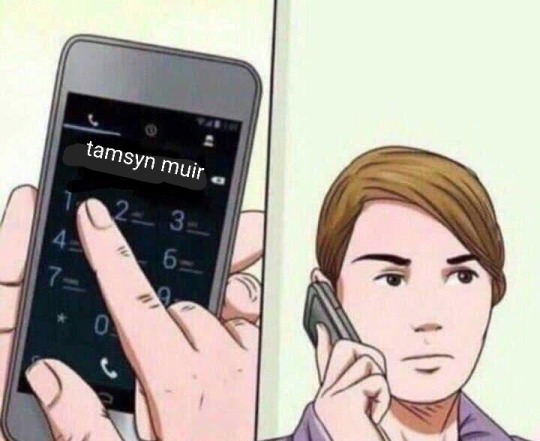
#.txt#don't ask why i'm just now watching a film i said i would watch like two weeks ago. i love lying for fun.#ANYWAY it's ulalume rather than annabel lee but i mean. the thematics are the same really innit#i literally had to pause the film to go 'oh my god' out loud
77 notes
·
View notes
Text
man, nothing says it's been a while since I watched an MCU film in full than having to go back a couple of years to clear gifsets out of my likes, unless it's something like CATWS or BW where things tend to pile up because I watch them too often to clear them out.
(I used to do this with TCW and Rebels episodes back in the day, it is a very long-established Tumblr usage of mine. which is why I do get annoyed at "you shouldn't just like stuff, you need to reblog it" posts on Tumblr: you never know how someone is using their likes.)
#sorry that's what's going on in case you're like 'wtf is up with all the tdw posts'#it's been a minute since I watched it in full last#the reason for that is I was putting off doing thor rewatches in case it Awakened Something#and I dropped home or earlier horizon to go back to morning#right now I'm doing a phase 2 rewatch#it's just that some films tend to pile up more in my likes because of who I follow which is why I had very little im3 stuff#even though I LOVE im3 it's one of my absolute faves#and have several years worth of thor stuff#(don't ask about catws or bw I could literally reblog nothing but those two for days)#bedlam watches the mcu
17 notes
·
View notes
Text
ok i'll admit gerard butler reprising his role as stoick for the httyd live-action is very cool that sounds like a fun time
#BUT DON'T get it twisted...#i'm still not watching this movie asdkhasdjh#i just think live-actions are so unnecessary most of the time considering the animated films already have SO MUCH MAGIC#there's literally no point in them like sorry i'm a hater abt this ☹#also httyd 1 is Peak it just can't ever be topped#ANYWAY why can't we get an adaptation of the books instead ..............#that's what the people REALLY want#jackshiccup text
23 notes
·
View notes
Text

i uh. well. don't know how to explain why i'm just putting this on your dash without warning but Fighter (2024)'s trailer is out and this one's going to murder me
#film: fighter (2024)#fighter#fighter 2024#hrithik roshan#deepika padukone#anil kapoor#bollywood#local gay watches Bollywood.txt#do you know how salty i am that miss Deepika keeps collecting all my DILFs. do you understand this#Anand directed this ofc but i knew from the opening shot he really said 'let me f*ck with y'all and give you a Pathaan x War merger#before it officially happens in a full length film' and i say ty for that bc see#this is the AU Rubi x Kabir agenda there are at least two kisses in the trailer alone. i chose this one bc yk. Besharam Rang vibes#+ it's giving Bang Bang (2014) for some reason. don't ask me why i have the title track in my head atm#Tumblr pls don't block me there's nothing unsafe here sksksksk just heart palpitations for bisexuals#edit: oh how could i forget the semi Don ref in the opening. we're back bitches we're so back
37 notes
·
View notes
Note
Saw your tags and omg HARD AGREE. Dragon Cry is SO bad nfkanmdsa
ME AND YOU SHAKING HANDS
Actually yes thanks for giving me the excuse to rant. Hold on. I'm typing furiously rn.
-Okay first of all they gave us the most ridiculously confusing plot I've ever seen. The twist with Sonya being Animus was kinda cool but they never really. Explained why she had a bond with him? She mentioned he used to be kindhearted at some point but we never see that literally ever at any point in the movie?
-The storyline is so all over the place it's a HOT mess. Especially the scene right after Natsu escapes the weird bird cage thing he runs off to find the others and suddenly they're all there? For some reason? Where did they come from. Why didn't they have a little reuniting scene. I literally rewound the movie to make sure I didn't accidentally skip a scene but nope they just made the most awkward cut/story progression in history I guess!!!
-The fanservice was so. SO bad. Like yeah the majority of the time I can at least tolerate it but this time it just made me extremely uncomfortable. Why are Erza and Lucy's boobs SO fucking large. Why did they have to make Lucy dance in like two strips of cloth. I thought I woke up in an alternate universe where Fairy Tail was a hentai. I genuinely wanted to vomit lmao
-The animation style really threw me off like I can tell it was either animated by a different studio or they wanted to try a different art style for the movie? But it just felt wrong and the proportions and faces were weird and. Yeah idk.
-What was up with the Three Stars?? Iirc we never got to learn their names or what their motivations were they were literally just. There. And they were built up to be these super powerful wizards only to get their asses kicked by FT like two scenes later. I get that being a movie obviously the fights had to be shortened but they literally did the same thing in Phoenix Priestess but WAY better. They really were like yeah uh we need some enemies for Team Natsu to fight let's just go with these guys and not give them any personality or backstory or motivations. (Except for the doll dad he was okay I guess)
-WHY WAS LEVY THERE. LITERALLY. ACTUALLY. She literally did nothing she served NO purpose in the movie she was just there?? Did they just want to shove in as many cameos as possible??? I know generally Levy isn't much of a fighter which is fine, I was kinda expecting them to do a Gajevy scene where Gajeel rescues her from some soldiers or smth which would have been fine but they didn't even do that. She literally just stood there and had like 2 voice lines. GO GIRL GIVE US NOTHING
-SPEAKING OF CAMEOS this is more personal beef than anything but man WHYYY wasn't Loke in the movie,, my boy my beloved my stupid idiot lion I'm so mad he wasn't even onscreen for like, 5 seconds
-I'm sorry but Juvia was so unhinged this movie her possessive/stalker behavior over Gray was actually super fucking creepy lmao
-What did they do to Happy. What the FUCK did they do to Happy

THEY MASSACRED MY BOY. LOOK AT HIM. HE'S GOT ANXIETY
-ALSO the scene where Happy and Lucy were crying over Natsu and we got tons of flashbacks from his POV of people who are important to him? WHY THE FUCK WASN'T HAPPY THERE?? They literally showed everyone from Fairy Tail precious to Natsu except Happy and I'm just sitting here like. HELLO?? You are SO wrong for that
-I will say I DID enjoy the little Nalu teasers we got especially the scene where Natsu showed Lucy the stars 🤧
But yeah I was here for this and this only:
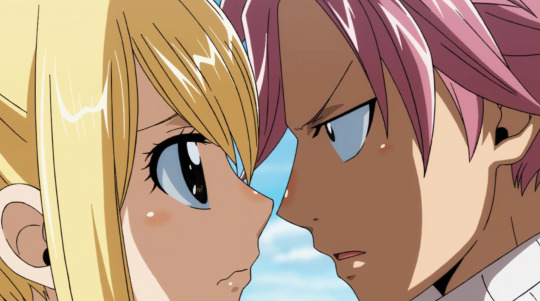
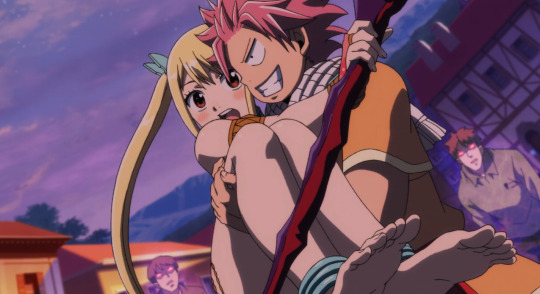
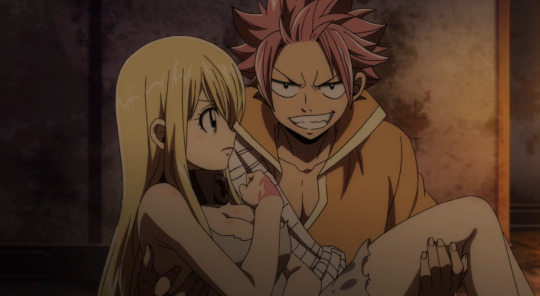





The Nalu + Happy family bonding moments made it OKAY
Anyway sorry rant over. Dragon Cry bad. Natsu's brief moment of looking half dragon was a super sexy character design choice but the buildup is not worth it imo
#God damn it I just *clenches fists* hate Fairy Tail. That's a lie I love Fairy Tail.#Which is why I'm so mad this movie did it dirty#Shima answers questions#Phoenix Priestess was so good especially in comparison to this......#Ughhh this movie could have been FANTASTIC if they'd actually written it better#Anyway it wasn't AWFUL it was standard as far as anime films go. But I definitely wouldn't recommend#And I'm definitely not going to watch it a second time lmao#Long post#SORRY IDK WHAT TO TAG THIS. ASK TO TAG. I don't want to put my negative ramblings in the tags#Negative#I GUESS?? IDK#Fairy Tail#FT#Nalu#Fairy Tail Dragon Cry
22 notes
·
View notes
Text
I was rewatching AWE the other day and got remembered of Davy's absolutely feral growl in this scene. I have no idea whether it was scripted this way or not, but I'm glad they left it in because honestly - I absolutely love it. and I kind of want more feral Davy now
#I swear there was something more sophisticated I wanted to add to the caption but my brain just kinda stopped working#I don't know why but hearing him growl like that is doing things to me#like it literally makes me feel a shudder running down my back (in a positive way)#also fun fact: I'm not sure if I remember correctly but I think I once watched an interview with Bill Nighy where he talked about-#working on the underworld films and how the characters were basically just constantly growling and hissing at each other-#and he found it absolutely hilarious#makes me wonder if Davy's growl here was actually in the script or more of a spontaneous acting decision from Bill#either way he did great <3#although I'm not even 100% sure if it was Bill playing him in this scene bc they also had a stuntman for the fights#but I'm kinda assuming he was bc it was rather close up so his behaviour and body language would be more authentic#davy jones#davy jones potc#bill nighy#pirates of the caribbean#potc#at world's end#potc awe#potc 3#jack sparrow#selniasoriginal
60 notes
·
View notes
Text
i like going to the movies because there's no pause button. they force you to watch the whole thing at once. whenever i watch a movie at home i split it in several sections and watch a little bit every day like they're different episodes of a show
#and that's why everyone hates watching movies with me#what can i say? it gets hard to pay attention after 30 minutes or so#my minds starts to drift#but thankfully i don't have this problem with books#i can read them for like 10 hours and still want more#memes#fyp#fypツ#funny#explore#explorepage#hilarious#movies#cinema#films#fypシ#writers on tumblr#fypage#tumblr fyp#foryou#viral#foryoupage
39 notes
·
View notes